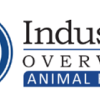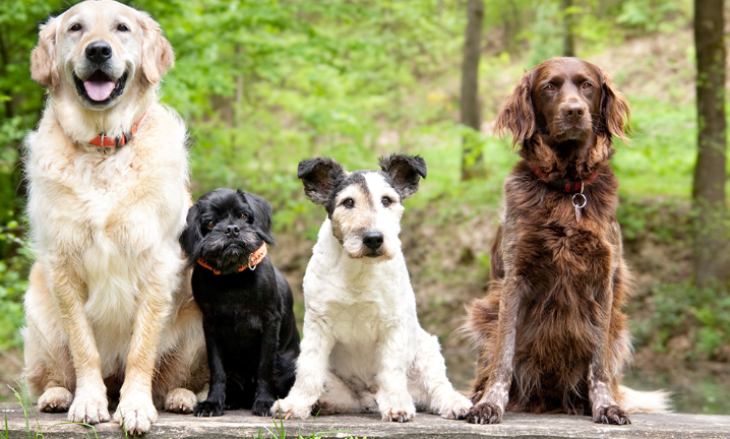Recent Posts
- Building a Robust and Diverse Ecosystem Innovation Ecosystem in the Animal Health Industry
- Cultivating A Champion Culture: Balancing Performance and People in Animal Health
- How Stable are Earnings in Animal Health? Results of the Animal Health Jobs 2025 Salary Survey
- Entry Fees for the Race for Talent: Results of the Animal Health Jobs 2025 Salary Survey
- Looking In The Gift Horse’s Mouth: The Pros and Cons of Counteroffers in Animal Health
Most Popular
-

How Stable are Earnings in Animal Health? Results of the Animal Health Jobs 2025 Salary Survey
-

How Will Artificial Intelligence Change Jobs In Animal Health?
-

News to Know from Brakke Consulting’s 2025 Animal Health Industry Overview
-

Building a Robust and Diverse Ecosystem Innovation Ecosystem in the Animal Health Industry
-

Entry Fees for the Race for Talent: Results of the Animal Health Jobs 2025 Salary Survey
How to Succeed in a Panel Interview

Navigating the animal health job hunt jungle may include speaking with an interview panel, all of whom you must simultaneously convince that you are the right person to hire. Whether you’re facing a peaceful flock of doves or a circle of ravening hyenas, with solid preparation and communication you can ace the interview.
Who is on an interview panel?
An interview panel generally includes 4 or 5 interviewers, each with a different relationship to the job you seek. They may be at your level or above it, in the same or partner functions. Human Resources and Diversity Officers may be included as well.
Knowing the composition of your interview panel in advance will help you prepare. Ask your contact for their names and, if possible, their positions. Then do some research: Who are your interviewers? What have they accomplished? What makes them tick? Animal health is a small industry; you may know some of the panel members and will probably find first-hand information on others. Use what you learn when posting and answering questions.
Why companies use panel interviews
Animal health companies have different reasons for using panel interviews. Some companies like to challenge or pressurize candidates, to see how they perform under stress. This may be particularly true of highly performance-driven cultures. Putting a candidate in front of a group of strangers and expecting them to sell something (in this case, themselves) is both a stress test and a real-life scenario for some jobs, like sales professionals.
Sometimes it’s just the most efficient way for a company to evaluate a candidate from multiple perspectives. Each interviewer can ask questions and hear the answers, eliminating second-hand opinions in the selection process. Whatever the reason, preparation can help you succeed.
Tips for success
We’ve shared tips for improving your one-on-one interview skills before. Panel interviews require another level of interview expertise.
More than words To manage the questions that fly in from all directions, leverage your non-verbal communication. Look at the person who asked the question, then make eye contact with other panel members while answering. Turn your shoulders towards the person you are looking at, to further include them. Try to generate a sense of conversation rather than cross-examination by using relaxed, open, and inclusive body language.
Observe while you answer Panel interviews encourage rapid-fire questions and follow-ups. Use this opportunity to observe how your future colleagues interact. Do they cut one another off? Repeat questions? Does one person dominate? These are excellent clues to the corporate and team culture.
Control the pace If your interview speeds up like a runaway horse, rein it in. Short breaks like sipping from a glass of water and taking a breath before answering can subtly slow the pace and give you time to think. Keep your answers brief and to the point. If someone repeats a question, expand on your first answer, emphasizing your experience, abilities, or plans.
Ask thoughtful questions Asking your own questions showcases your ability to think deeply about the job and helps build rapport with different panel members. Develop several thoughtful questions before the interview. Demonstrate your ability to learn and assimilate information by asking more questions based on what you learn during the interview.
How many questions is enough? We recommend asking one or two more questions than the number of people on the panel.
Share and share alike Treat panel members equally; expect multiple influencers as well as the decision maker in the room. Bring enough resumés or portfolios for every panel member. Draw quieter panel members out with questions and make eye contact with them while answering. Refer back to one person’s comment when answering another’s question
Start and finish the interview with a firm handshake and a few words with each panelist. After the interview, send each panel member a personalized thank you.
Practice for success Turn a group of trusted friends into a mock interview panel. Encourage them to ask you difficult questions with multiple follow-ups, and to repeat questions.
Tame the tigers
Panel interviews can be intimidating at first, but like other interview types they can be learned and mastered. Prepare until you are comfortable talking about yourself and your abilities with a group. With a bit of practice, you can outshine other candidates.
---
Successful interviewing starts with applying for the right jobs. Animal Health Jobs can help you find them. Register and search for job openings with the top animal health and animal nutrition companies.
Register for job alerts and our newsletter to stay on top of the latest jobs and trends in animal health and animal nutrition.



Comments